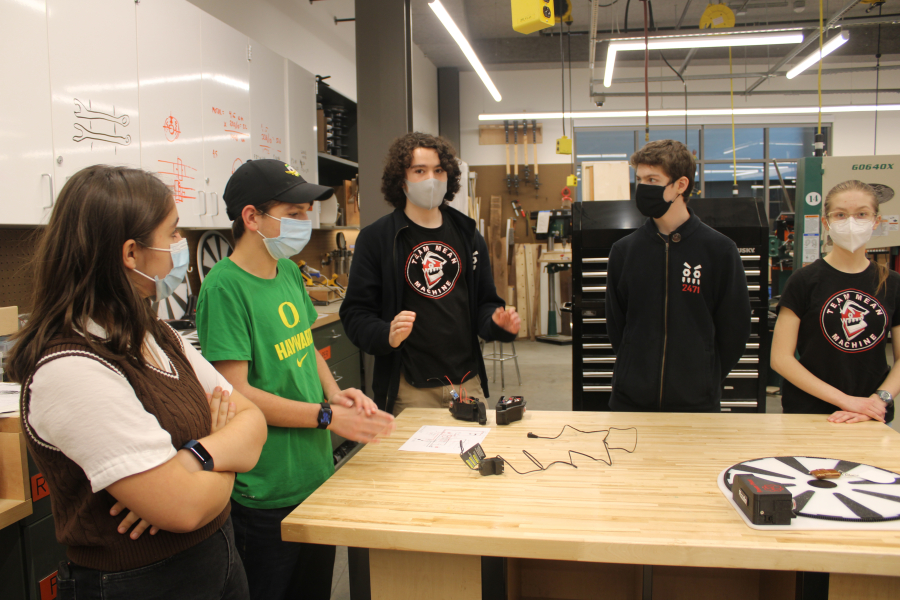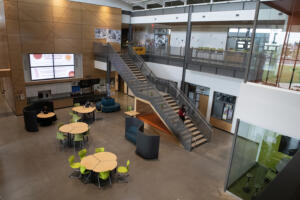It was a call from one of Discovery High School teacher Bruce Whitefield’s neighbors that kicked things off.
The man’s wife was experiencing limited mobility and was in need of a device that could help her rotate while standing without needing to twist her body.





